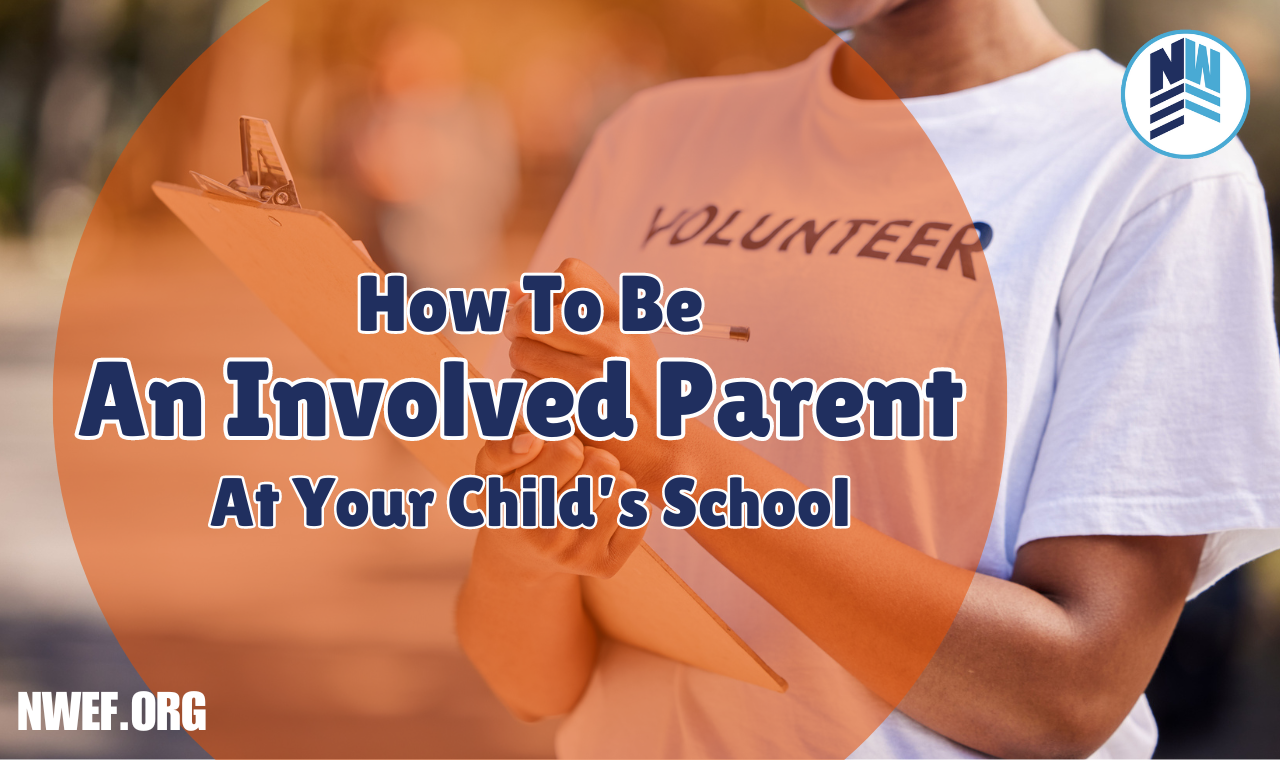
“Student Success is Tied to Parental Involvement!”
“Study Suggests Parents an Important Link to Academic Success.”
“Teachers Encourage Parents to be Involved in Their Child’s Education.”
Parents are bombarded with headlines like these every year, urging them to partner with their child’s educators. Teachers, administrators, and the media flood families with dire warnings, encouraging statistics, and pleas for parents to participate. Even the U.S. Department of Education recently jumped aboard the parental involvement train when they launched their new Parental Engagement Council.
By and large, parents don’t object to this campaign, but the challenge is finding the time and resources or knowing just what “being involved” looks like. This article will explore some effective strategies for you to become engaged in your kid’s academic world and practically encourage your student’s success!
Why Be Involved At All?
Before making an effort, perhaps you’d like to know why your valuable time and energy are critical to your child’s education. Your student has teachers, curriculum, school activities, extracurricular events, and so many other ways to enrich their education. You already buy school supplies, do drop-offs and pick-ups, and drive them around to after-school practices. Why should you get more involved, too?
Dena Standley writes, “… whether you homeschool or your kids attend school, their education remains your responsibility as a parent. Whether you have a fantastic school system loaded with amazing teachers or a subpar school system with struggling teachers, the responsibility remains with the parent to ensure your children receive the education they deserve.”
Parents carry the keys to a child’s overall success. From infancy to adulthood, mom and dad are the most influential individuals in a kid’s life. Is it any wonder that parents make a tremendous impact when participating in their child’s education?
Parental involvement is undeniably beneficial for students. Current data notes that it is the single most influential factor in student success, surpassing race, social and economic status, religion, or other background and environmental considerations.
Learning Liftoff notes that there are tremendous benefits to the parents too, when they participate in their kids’ education. They suggest that these parents:
- “Interact with their children more and are thus more sensitive to their emotional and intellectual needs
- Have more confidence in their parenting abilities
- Have a better understanding of the teacher’s role and the curriculum
- Use more positive reinforcement the more they know about developmental stages
- Are more likely to respond to teachers’ requests for help at home when they stay apprised of what their children are learning
- Have higher opinions of and feel more committed to their children’s schools
- Become more active in policy-making at school and in the community”
When parents are proactively engaged in their child’s education, the benefits multiply for everyone!
How to Be Involved
Begin Small; It’s Huge
The best way to begin is at home. You don’t have to immediately jump to volunteer work outside your four walls. Establish a healthy relationship with your kid and cultivate an atmosphere of learning, positivity, and stability. Encourage a love of learning and emphasize a healthy respect for education. Your attitude toward their schooling will rub off, and this outlook on school can be a help or a detriment.
Metro Family suggests, “Establishing a routine that schedules time for homework, reading, discussion, and sleeping allows your whole family to get in the habit of making learning a priority. Be as consistent as possible in maintaining that structure.”
Teaching your kids life skills, like critical thinking or time management, can also enrich their academic abilities. The foundation for their education begins at home with you; make the most of it!
Take An Active Interest
Going back-to-school shopping, kissing your child goodbye, and sending them off fulfills your basic responsibilities. However, to support your student’s education and encourage success, you can choose to be more involved through a proactive interest in their school.
`
Colorìn Colorado suggests that parents learn about their kid’s specific school environment. “Read the information the school sends home…Talk to other parents to find out what programs the school offers. Maybe there’s a music program, after-school activity, sports team, or tutoring program your child would enjoy.”
Parents have a variety of ways to take an interest in their student’s school environment. Some of these include:
- Attending school events
- Attending PTA or PTO meetings
- Actively communicating with teachers, administrators, and other school personnel
- Researching and understanding aspects like the school budget
Invest in Your Child
Along with actively participating in your child’s school environment, investing in your student fosters a spirit of engagement and interest. As their first and primary teacher, this connection can be jumpstarted long before they enter their first classroom. Start by encouraging a love of learning and creating an environment that fosters excitement for the unknown.
Once they’re school-aged, ask them questions about their teachers, friends, and favorite school activities. Discover what they like and dislike. Investing in your kid shows them that you love them and that their education is a priority for you.
You can actively invest in your student by reading to them at home, helping them with their homework, creating fun ways to incorporate education into their everyday life, and giving them a voice in their education. Would they prefer to play hockey or football? Is choir important to them? Perhaps a year in FFA is more to their liking.
Another unique way to invest in your child directly is to discover their individual learning style. Candice Bowles, a mother of four, tells Metro Family Magazine, “Don’t just help kids with homework or go to their activities, but find out if they are really understanding and learning what they are being taught… A straight-across-the-board curriculum is going to leave some kids not understanding what they are learning. So as a parent, take the time to find out if they are really learning and if not, find out their learning style (auditory, visual, or kinesthetic) and find ways to help them really LEARN.”
Connecting with your child and helping them along their academic journey will benefit you and your student.
Volunteer
One obvious way for parents to get involved is through volunteer work. When you volunteer your time and energy, you connect with a portion of your child’s world while demonstrating positive qualities as a role model for your student.
Schools generally welcome parental volunteer work. Don’t know where to start? Here are some simple ideas!
- Volunteer in the classroom
- Offer to spearhead a small group focused on art, science, or a special project
- Special events require a lot of time and effort. Let the coordinators know you’re available and be specific about your schedule so there are no mix-ups and you can make the most of it!
- Tag along on field trips to help the teachers out.
Opportunities abound; you just need to lasso the right one! You might have to be creative or willing to do the mundane, but volunteer work is all about serving others.
“If your work schedule doesn’t allow you to volunteer in the school building, there are other ways to offer your time,” explains the Center for Parent Teen Communication. “You can volunteer to translate newsletters into other languages, make phone calls to let others know about school-related activities or work on materials for school events. Be on the lookout for volunteer opportunities and share your special skills!”
The School Board
Parents and the school board have a very close direct link—the students. As low-key as your local school board might appear to be, it’s actually a highly influential group of individuals. Here are a few ways you and the school board can work together to keep you involved:
- Run for office! Serving on the school board provides an excellent opportunity to be directly involved in the policies and decisions that affect your kid’s school experience. The school board oversees the local school system, establishing policies, choosing curriculum, and handling dozens of other school-related details. When it comes to your local school district, they have considerable influence. What better way to participate in your kid’s schooling?
While running for school board may not be as scary as it sounds, public office isn’t everyone’s cup of tea. If you don’t feel comfortable running yourself, there are other ways you can participate!
- Did you know that only 5-10% of voters generally show up for school board elections? These local candidates are making tremendous decisions for the kids in your community, yet voter turnout is negligible. To impact your child’s school life in extraordinary ways, stay up-to-date on the school board candidates, elections, and policies. Make an effort to vote during school board elections.
- Attending a school board meeting is an effective method for advocating for changes you want to see in your district. School board members are serving their community to offer positive change, and they need your help to fulfill this goal effectively. You care about your child’s education experience, what they’re learning, and how the district functions. Attending school board meetings allows your voice to be heard and provides the board itself with a compass for community support.
Cookie-Cutter Doesn’t Cut It
When you want to become involved in your kid’s education, the solution isn’t one size fits all. You and your family are unique with your own resources, talents, and challenges. Don’t be intimidated by expectations or how others choose to participate.
Your input and guidance are crucial pieces to your child’s academic puzzle. From deciding which school they should attend to watching them cross the stage at graduation, your participation will change the outcome in ways you can’t even imagine.
So, jump in! With endless possibilities and opportunities at every turn, your student deserves to have you involved, and you will reap the benefits, too!




